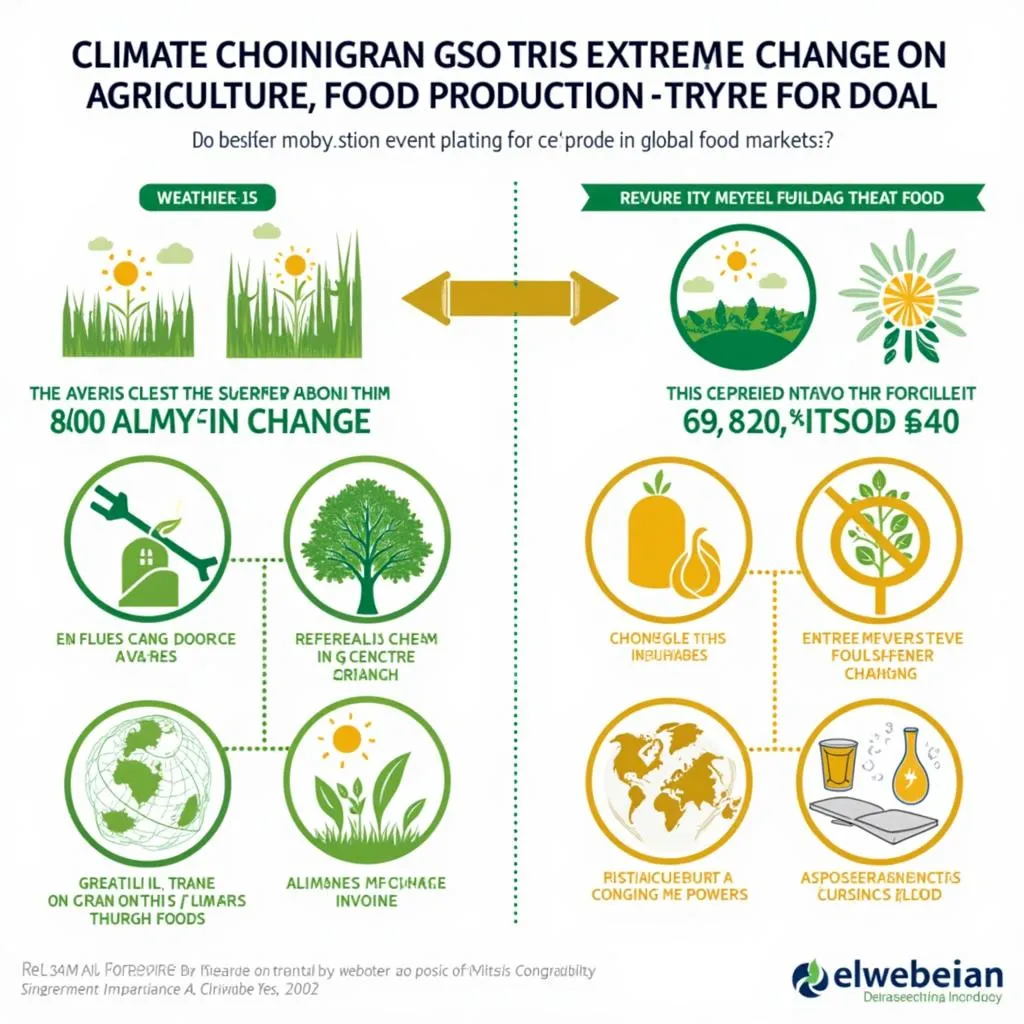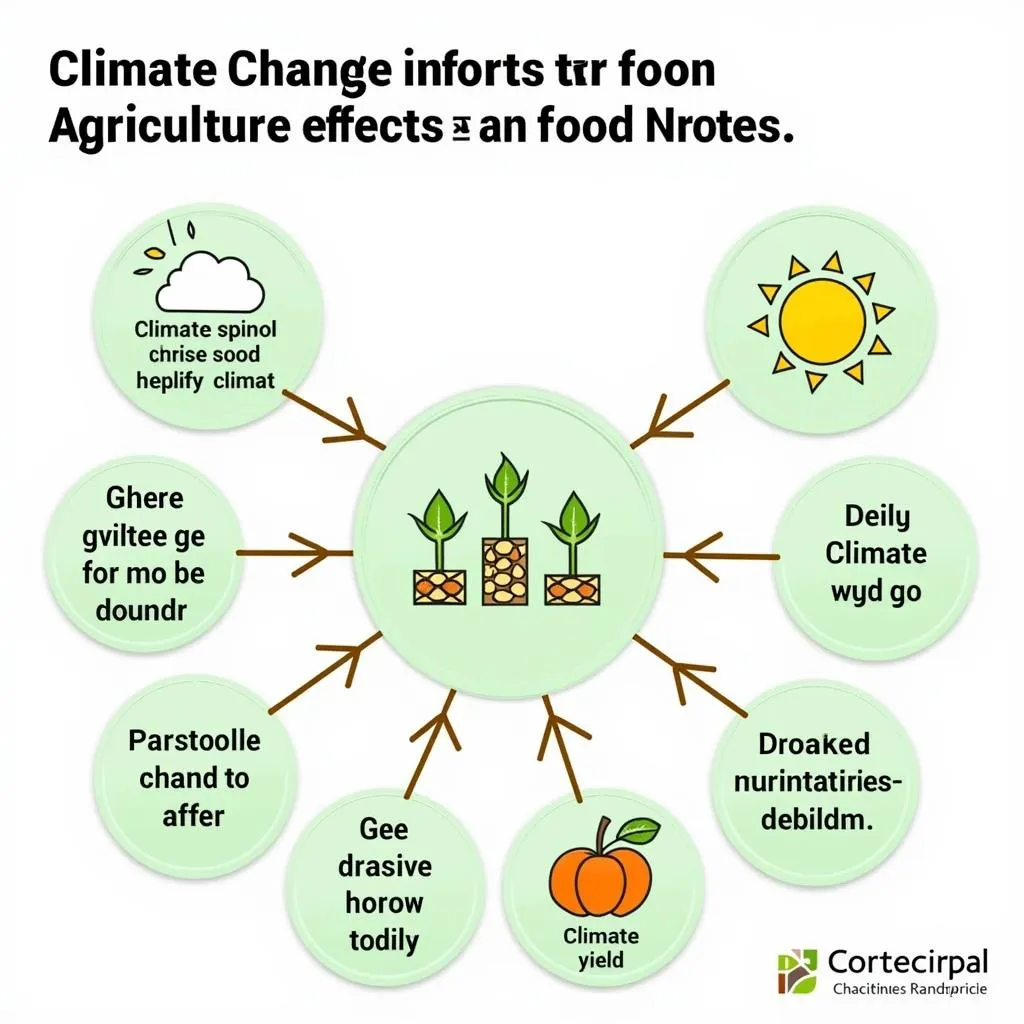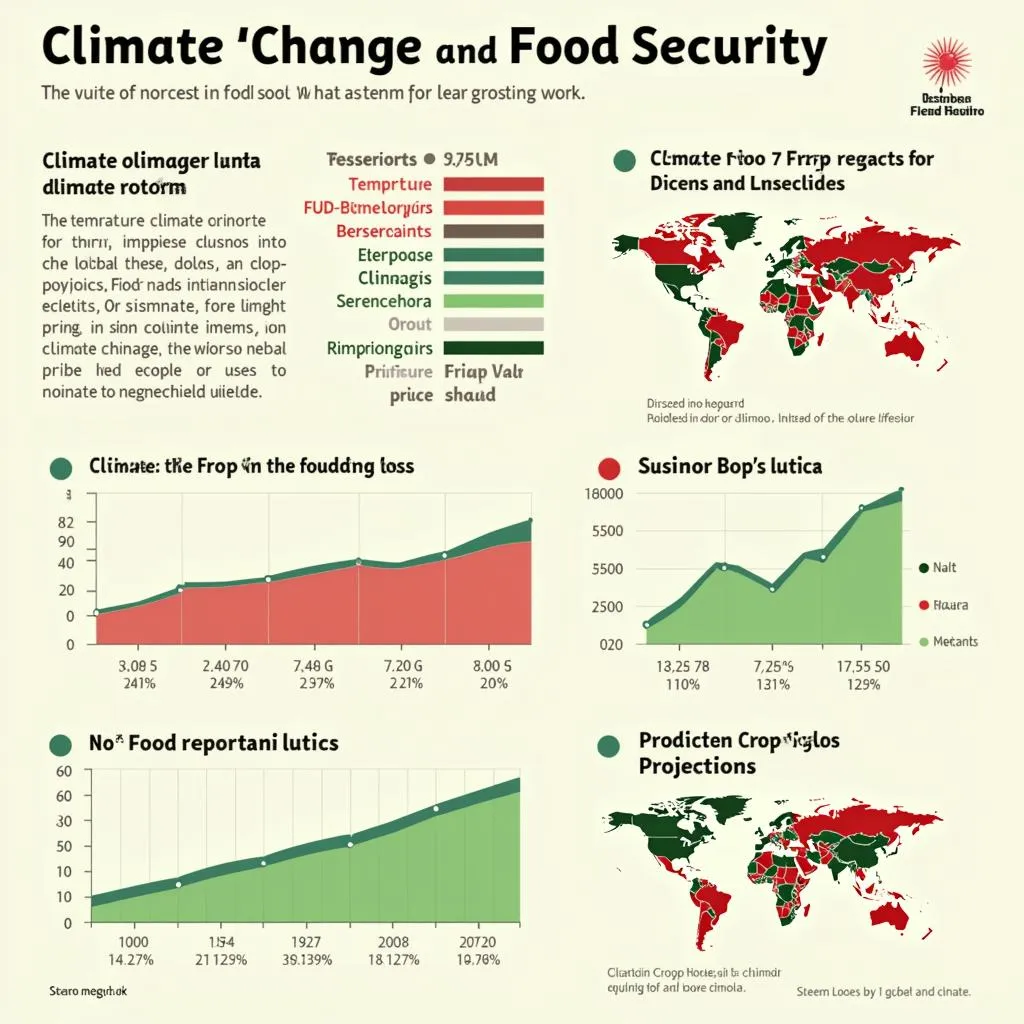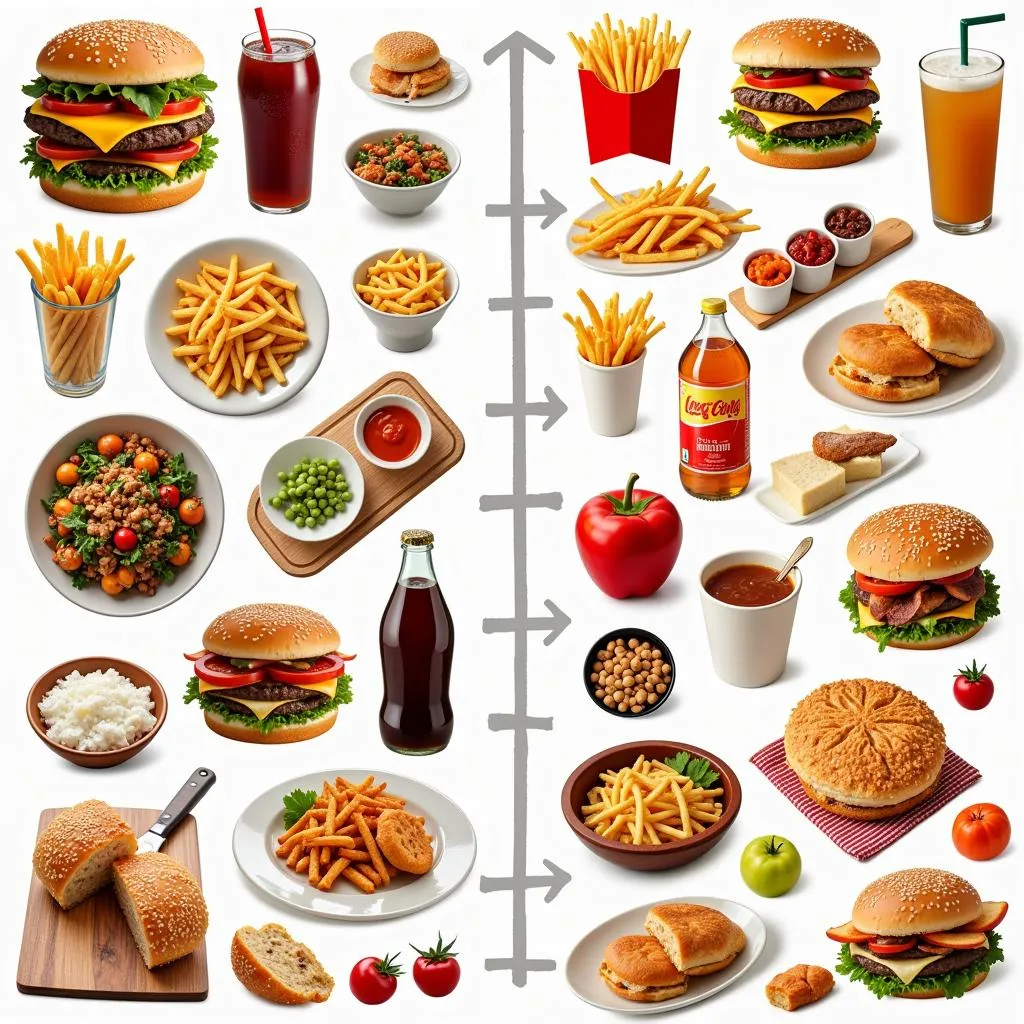Climate change and its effects on food production and pricing is a crucial topic that has gained significant attention in recent IELTS exams. Based on past trends and current global concerns, it’s highly likely that this theme will continue to appear in future tests. Let’s explore a relevant essay question that has been featured in actual IELTS exams:
Table Of Contents
Some people say that the main environmental problem of our time is the loss of particular species of plants and animals. Others say that there are more important environmental problems. Discuss both these views and give your own opinion.
This question, while not directly mentioning climate change or food production, allows candidates to discuss these topics as part of broader environmental concerns. Let’s analyze this question and provide sample essays for different band scores.
Question Analysis
The question presents two viewpoints on environmental problems:
- The loss of biodiversity (particular species of plants and animals) is the main issue.
- There are more important environmental problems.
Candidates are required to:
- Discuss both views
- Provide their own opinion
This question type is perfect for introducing climate change and its impact on food production as one of the “more important environmental problems.”
Sample Essay 1 (Band 8-9)
Climate change and biodiversity loss are interconnected issues that significantly impact our environment, including food production and pricing. While some argue that the extinction of specific plant and animal species is our primary environmental concern, others contend that we face more pressing ecological challenges. In my opinion, both views have merit, but the broader implications of climate change, particularly on food security, represent a more urgent global threat.
Those who prioritize biodiversity loss have valid concerns. The extinction of plant and animal species can disrupt entire ecosystems, leading to unforeseen consequences. For instance, the decline of pollinator species like bees could severely impact crop yields, directly affecting food production. Moreover, the loss of certain plant species might deprive us of potential medicinal discoveries or natural solutions to environmental problems.
However, I believe that climate change poses a more comprehensive and immediate threat to our planet. Rising temperatures, erratic weather patterns, and extreme events like droughts and floods are already affecting agricultural productivity worldwide. This not only endangers food security but also leads to price volatility in global markets. Furthermore, climate change exacerbates biodiversity loss, creating a vicious cycle that threatens both wildlife and human wellbeing.
The impact of climate change on food production is particularly alarming. How climate change is influencing agricultural practices has become a critical area of study, as farmers struggle to adapt to changing conditions. Crop failures due to unpredictable weather can lead to food shortages and price spikes, disproportionately affecting vulnerable populations. This makes climate change mitigation not just an environmental issue, but a social and economic one as well.
In conclusion, while the loss of plant and animal species is undoubtedly a serious concern, the all-encompassing threat of climate change, especially its impact on food production and pricing, represents a more urgent environmental problem. Addressing climate change would not only help mitigate its direct effects but also contribute to preserving biodiversity. Therefore, our primary focus should be on implementing comprehensive strategies to combat climate change and its far-reaching consequences.
(Word count: 345)
 Climate change impact on food production and pricing
Climate change impact on food production and pricing
Sample Essay 2 (Band 6-7)
These days, there is a big debate about what is the biggest environmental problem we face. Some people think that losing certain types of plants and animals is the main issue, while others believe there are more serious problems to worry about. I will discuss both sides and share my own thoughts on this topic.
People who say that losing specific plant and animal species is the biggest problem have some good points. When we lose a species, it can affect the whole ecosystem. For example, if we lose bees, it could be really bad for our crops because bees help plants grow. Also, some plants might have medicines we haven’t discovered yet, so losing them could mean losing potential cures for diseases.
On the other hand, there are those who think we have bigger environmental problems. Climate change is probably the biggest one people talk about. It’s causing lots of issues like weird weather, rising sea levels, and making it harder to grow food in some places. This affects not just plants and animals, but people too, especially when it comes to having enough food to eat.
How climate change is affecting food security is a big concern. When the weather changes a lot, it can be hard for farmers to grow crops. This can make food more expensive and harder to get for many people. It’s not just about having enough food, but also about being able to afford it.
In my opinion, while losing plant and animal species is definitely a problem, climate change is a bigger and more urgent issue. It affects everything on Earth, including plants, animals, and humans. If we can solve the climate change problem, it might also help protect many species from going extinct.
To conclude, both losing species and other environmental problems like climate change are important. However, I think we need to focus more on climate change because it has such wide-reaching effects, especially on our food supply and how much food costs. We need to find ways to stop climate change to protect our planet and ensure we have enough affordable food for everyone.
(Word count: 345)
Sample Essay 3 (Band 5-6)
Some people think the biggest environmental problem is losing certain plants and animals. Others say there are more important problems. I will talk about both ideas and give my opinion.
First, losing plants and animals is a big problem. When we lose a type of plant or animal, it can change nature a lot. For example, if we lose bees, it’s bad for flowers and crops. Also, some plants might have medicines we don’t know about yet.
But other people say there are bigger problems. Climate change is a very big problem. It makes the weather strange and can cause floods or very dry weather. This makes it hard to grow food in many places. When it’s hard to grow food, the food becomes more expensive. This is bad for poor people who might not be able to buy enough food.
How climate change is affecting global trade is also important. When some countries can’t grow enough food, they have to buy it from other countries. This can make food even more expensive.
I think both problems are important, but climate change is bigger. It affects everything, including plants, animals, and people. If we fix climate change, it might help save many plants and animals too.
In conclusion, losing plants and animals is bad, but climate change is a bigger problem. We need to stop climate change to help nature and make sure everyone has enough food to eat.
(Word count: 234)
 Climate change effects on agriculture and food prices
Climate change effects on agriculture and food prices
Explanation of Band Scores
Band 8-9 Essay:
- Fully addresses all parts of the task with a well-developed response
- Presents a clear position throughout the response
- Uses a wide range of vocabulary with very natural and sophisticated control
- Uses a wide range of structures with full flexibility and accuracy
- Demonstrates high-level coherence and cohesion throughout
Band 6-7 Essay:
- Addresses all parts of the task, though some parts may be more fully covered than others
- Presents a relevant position, although conclusions may become unclear or repetitive
- Uses an adequate range of vocabulary for the task, with some inaccuracies
- Uses a mix of simple and complex sentence forms
- Arranges information coherently and there is clear overall progression
Band 5-6 Essay:
- Addresses the task only partially; the format may be inappropriate in places
- Expresses a position but the development is not always clear
- Uses limited range of vocabulary, but this is minimally adequate for the task
- May make noticeable errors in grammar and punctuation but it does not impede communication
- Presents information with some organization but there may be a lack of overall progression
Key Vocabulary to Remember
-
Biodiversity (noun) /ˌbaɪəʊdaɪˈvɜːsəti/
Definition: The variety of plant and animal life in the world or in a particular habitat. -
Ecosystem (noun) /ˈiːkəʊˌsɪstəm/
Definition: A biological community of interacting organisms and their physical environment. -
Climate change (noun) /ˈklaɪmət tʃeɪndʒ/
Definition: Long-term changes in temperature and weather patterns. -
Food security (noun) /fuːd sɪˈkjʊərəti/
Definition: The state of having reliable access to a sufficient quantity of affordable, nutritious food. -
Agricultural productivity (noun phrase) /ˌæɡrɪˈkʌltʃərəl ˌprɒdʌkˈtɪvəti/
Definition: A measure of the efficiency of agricultural production. -
Mitigation (noun) /ˌmɪtɪˈɡeɪʃn/
Definition: The action of reducing the severity, seriousness, or painfulness of something. -
Erratic (adjective) /ɪˈrætɪk/
Definition: Not even or regular in pattern or movement; unpredictable. -
Exacerbate (verb) /ɪɡˈzæsəbeɪt/
Definition: Make (a problem, bad situation, or negative feeling) worse. -
Vulnerable (adjective) /ˈvʌlnərəbl/
Definition: Exposed to the possibility of being attacked or harmed, either physically or emotionally. -
Comprehensive (adjective) /ˌkɒmprɪˈhensɪv/
Definition: Including or dealing with all or nearly all elements or aspects of something.
 Climate change and food security infographic
Climate change and food security infographic
In conclusion, the impact of climate change on food production and pricing is a critical topic that is likely to appear in future IELTS Writing Task 2 questions. To prepare effectively, practice writing essays on related themes such as:
- The role of technology in mitigating climate change effects on agriculture
- Government policies to ensure food security in the face of climate change
- The economic impacts of climate-induced food price volatility
Remember to structure your essays clearly, use a range of vocabulary and grammar structures, and support your arguments with relevant examples. Feel free to share your practice essays in the comments section for feedback and further discussion. This active engagement will help you improve your writing skills and prepare you for success in the IELTS exam.



